FORWARD OPERATING BASE WARRIOR, Kirkuk, Iraq- The infancy of the women's rights movement began during the Middle Ages in the Middle East, when pioneers worked to improve the status of women in Islamic nations during early Islamic reforms.
According to Dr. Jamal A. Badawi in "The Status of Woman in Islam," women were granted rights in marriage, divorce and inheritance; and marriage became a "contract" as opposed to a "status," in which a woman's consent was imperative.
The women of Kirkuk city and northern Iraq gathered together to host a conference in Narwooz Hall in Kirkuk city March 14, aimed at improving the status of women's rights and their quality of life in Iraq.
"This is the first step," said Ali Noori Talabani, a retired member of parliament and the supervisor for women's activities in Kirkuk. "The goal of this conference, and others like it, is to bring together diverse groups that are involved in women's activities and build a goal that we can all work toward."
"They [women] have had very little political power for a long time," said Akar Azad, a student in Koya City, Iraq. "Even now, they have a very simple participation in politics."
This is the third conference recently discussing women's rights in the region. A final one will take place in Sulaymaniyah, Iraq, in April.
"After the final conference, we will take the decisions that we have made to the government in the region," said Azad. "Right now we are trying to increase women's representation in politics up to 30 percent, so they have the power to do what is best for them."
Overcoming negative attitudes and opinions of individuals about women's rights has been a struggle for women in the region.
"Under the old regime, we did not have many rights," said Talabani. "We were unable to make political and social gains. People try to use culture, society and religion as reasons not to grant women their rights or give them political power. It's not an easy job to change people's minds.
"We have to bring our issues to the neighborhoods, communities and media," Talabani said. "Women have been killed in the struggle to increase our rights, but, no matter what happens, it is important we keep trying everyday to make a difference."
Improving women's rights and political power could affect the region in many positive ways.
"Once we have more women in power, we will be able to continue making peace in the region," said Talabani. "When we get more rights, we will build a better city and country than we have today."
"They just have to give us a chance," she said.
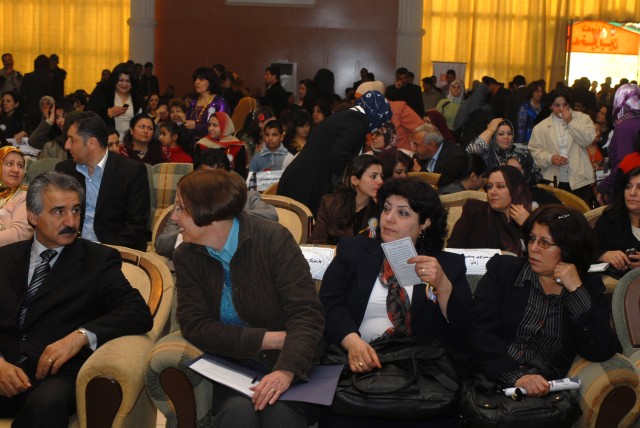
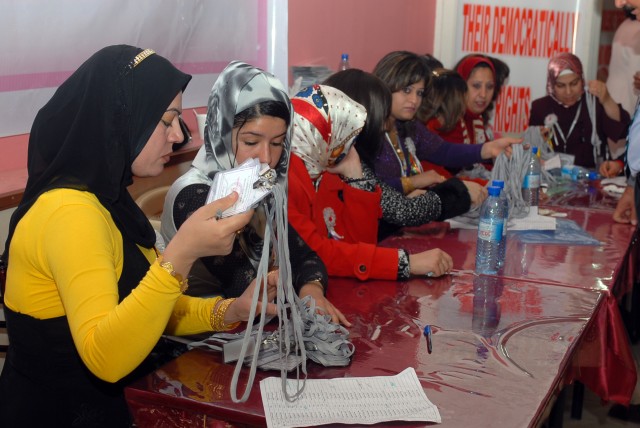
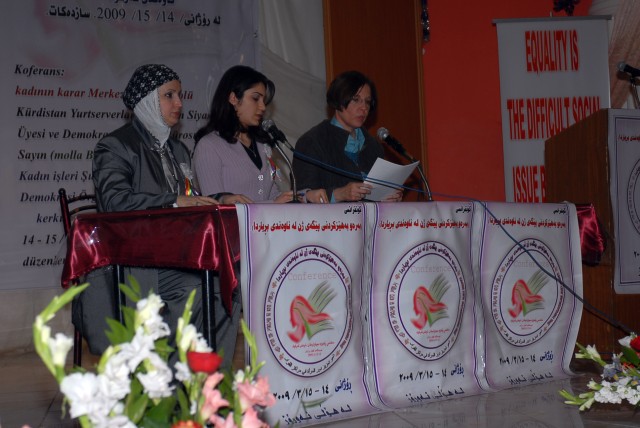
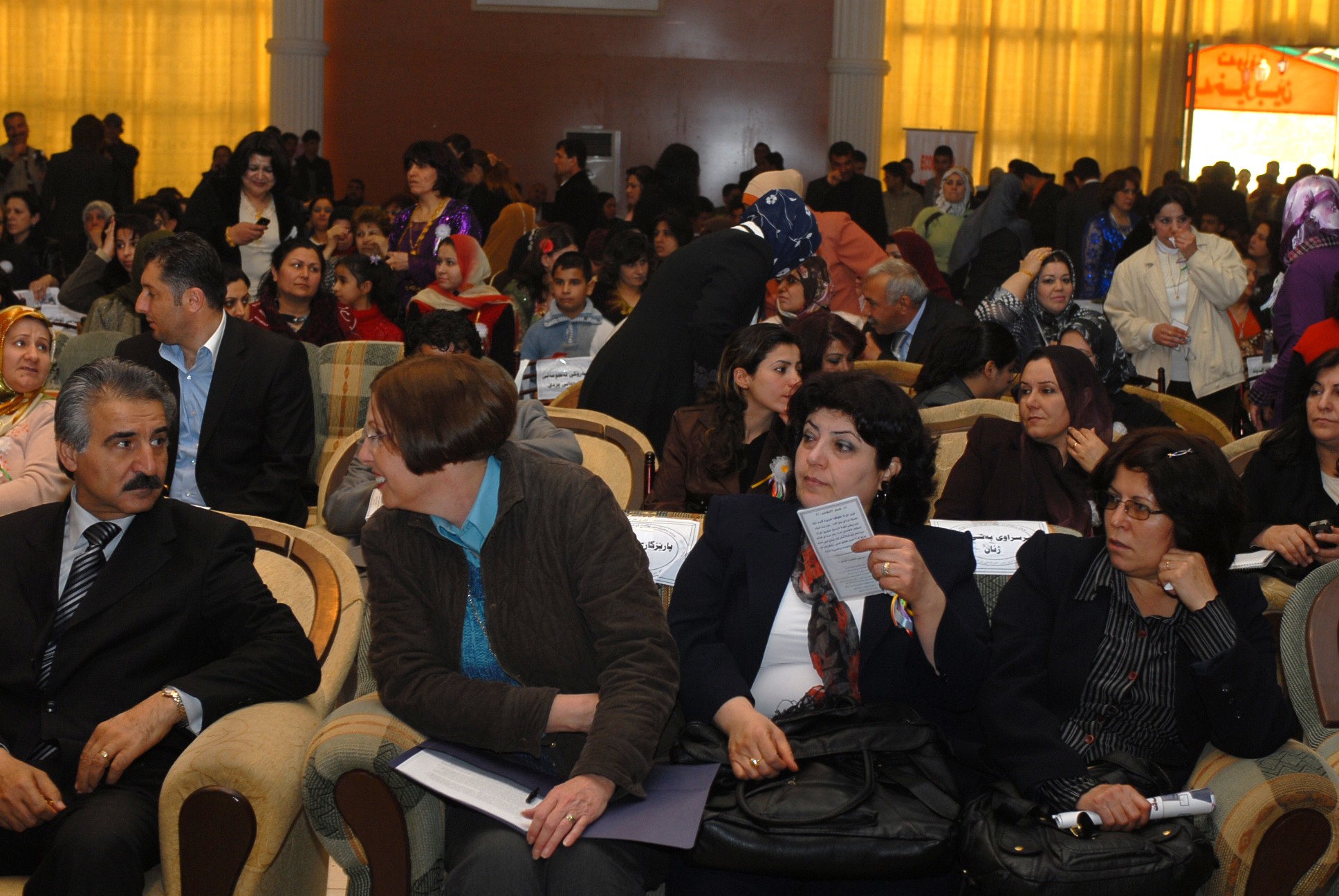
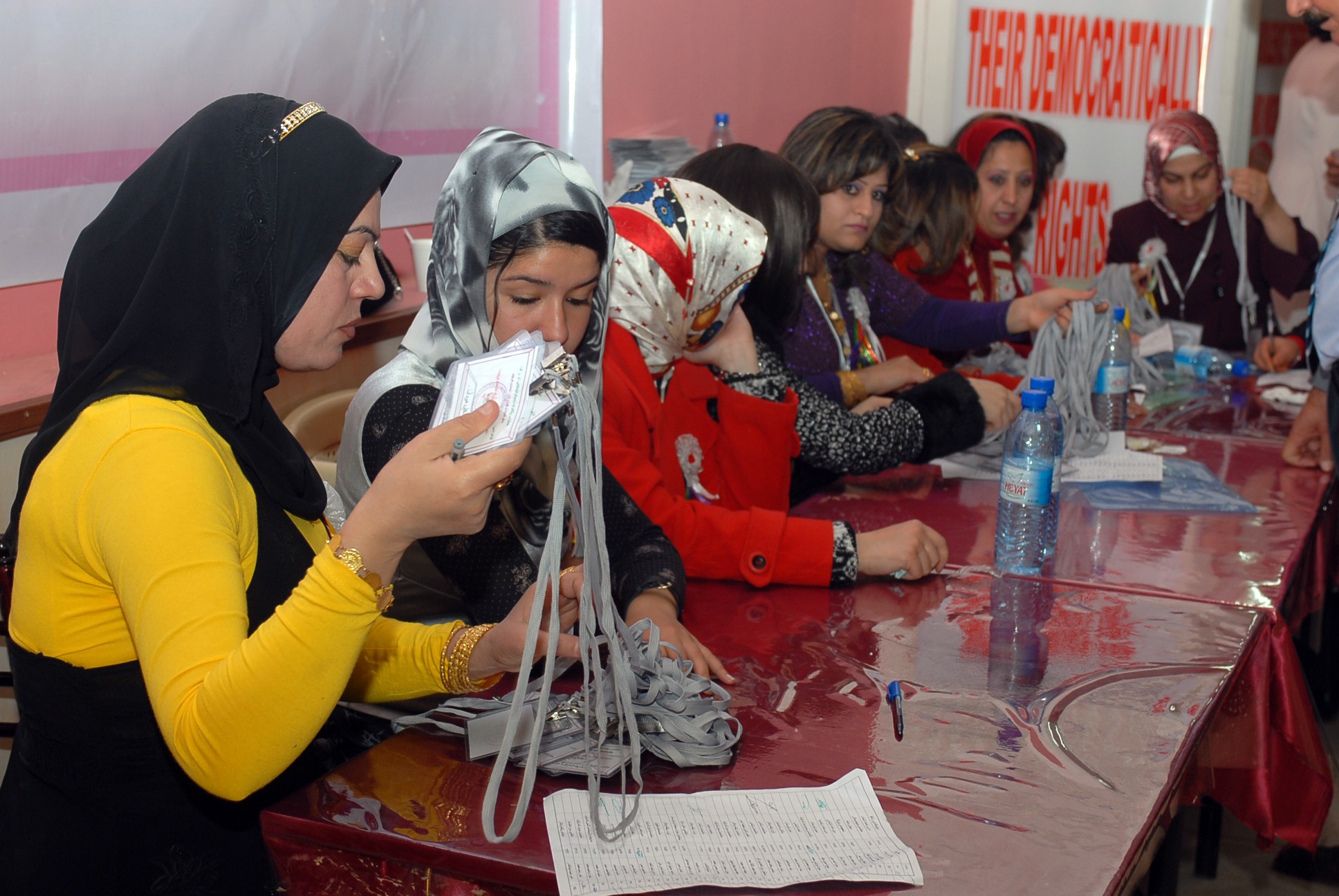
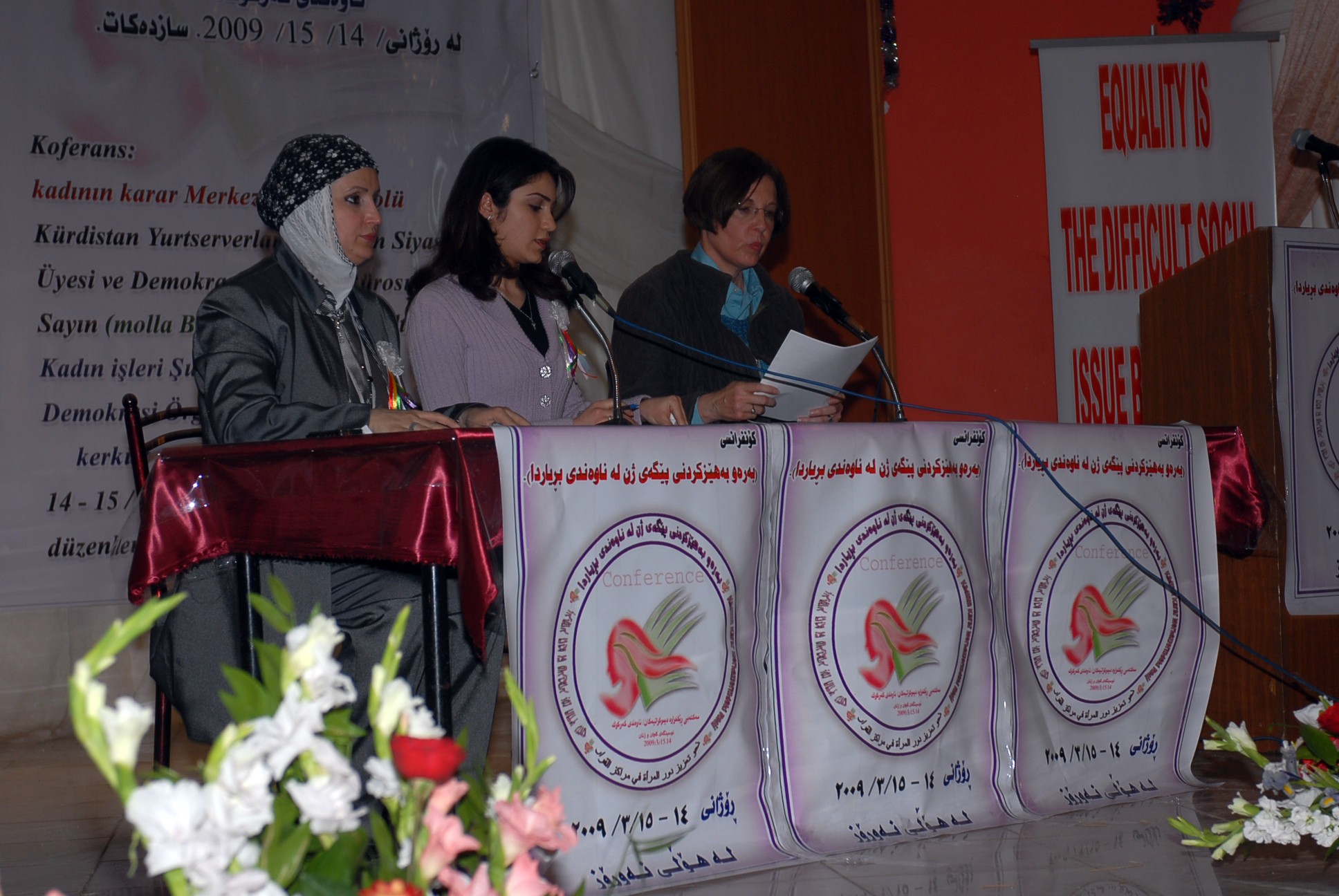
Social Sharing